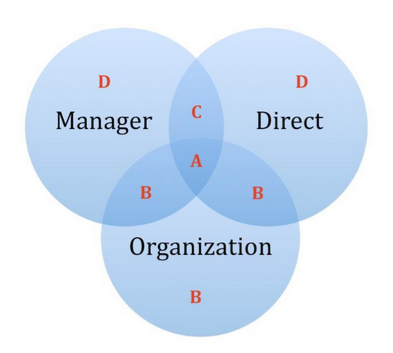Note: This article is the fourth in a four-part series on the tools managers can use to become highly effective leaders.
- The first article is on one on ones.
- The second article is on feedback.
- The third article is on coaching.
In the fast-paced business world, the role of a manager is crucial to the success of the team. A recent study compilation performed by WifiTalent found that companies with effective managers have 27% higher profitability. But what exactly makes a manager effective? For new managers, how do they reach the level of greatness they aspire to? For veteran managers, how can they improve their game to continue to foster high performing teams?
By looking at great leaders like Bill Gates, Jack Welsh, Charles F. Kettering, Lane Sloan, Tom Watson, and Henry Ford certain themes of great management begin to appear.
These themes are:
1. Great managers know their people exceptionally well.
2. Great managers communicate constantly about performance.
3. Great managers repeatedly ask for improved performance.
4. Great managers grow organizational capability.
Just knowing that these themes are important is not enough. Consider that the same WifiTalent compilation indicates that 69% of managers feel uncomfortable communicating with individual contributors and 33% of teammates dread meeting with their manager. This indicates that managers also need ways to put these themes into action to create positive results. For each theme, there is a corresponding actionable equivalent:
- If managers want to know their people exceptionally well, they need to have one-on-ones.
- If managers want to communicate constantly about performance, they need to be good at giving feedback.
- If managers want to ask for improved performance from their direct reports, they need to be able to coach.
- If managers want to grow organizational capability, they need to be able to delegate.
This article will do a deep dive into delegation, what delegation is, why managers should delegate, and what is the best approach when delegating. The goal is to help inform new managers of this great tool while giving veteran managers bolstered confidence by providing context into why it is effective.
What is Delegation?
Delegation is the act taken by a manager to give responsibility and authority to a teammate to conduct specific tasks or make decisions on the manager’s behalf. This is different from assigning work. Assigning work is giving a teammate work they should be doing based on their job description. The manager can make these assignments through role power meaning the manager can do this because they are the manager.
Delegating work is giving the teammate work the manager should be doing. Because the work being delegated is outside of the job description of the teammate, delegation requires relationship power, the manager cannot just force this work on a teammate because they are the manager, or at least they should not if they want the teammate to do a respectable job.
Why Should Managers Delegate?
Delegation offers great benefits to organizations that use it. In 2014, a Gallup study of 143 CEOs showed that CEOs who ranked high in delegator talent had an average company growth rate of 1751%, 112 percentage points higher than CEOs with low delegator talent. In addition, those high delegator talent CEOs produced greater revenue, $8 million, compared to low delegator talent CEOs, $6 million.
 Delegator Talent Gallup Study
Delegator Talent Gallup Study
The reason delegation has this effect on business is because of how employees respond to delegation. In 2007, the Journal of Applied Psychology published a paper called, “A multilevel study of leadership, empowerment, and performance in teams” that found that when power and authority were delegated to employees, the employees had more freedom to work autonomously and experienced a range of positive outcomes such as higher job satisfaction, organizational commitment, innovative behavior, and task performance. This higher performance led to greater productivity and greater productivity led to greater profitability. In addition, employees felt they had a clearer career path as delegation gave them line of sight on the next set of responsibilities and skills they would need to master.
For businesses in industries facing a shortage of talent, delegation can also be used as a recruitment tool. An article by Havard Business Review called, “How Google Sold Its Engineers On Management” found that Google attracted talent with a more relaxed management culture in which authority is delegated and subordinates are more involved in decision-making. Google found that the managers with the best results empowered their teams and avoided micromanagement.
Finally, for folks that are more financially focused, we know that growth and profitability are closely related to productivity. Consider that delegating tasks or seeking help can streamline processes, allowing managers to focus on higher-priority responsibilities. In addition, the delegated teammates are trained in how to do more things, and the team’s overall work capacity increases. The team ends up doing more without increasing payroll.
This means that the answer to growth is increasing productivity, but that doesn’t necessarily mean hiring. This is why the high delegator talent CEOs in the Gallup study were able to grow so well. In addition, more productive employees are happier employees, and these happy employees build a culture that attracts talent. Delegation is the catalyst that starts the chain reaction and that is why great managers use delegation to grow organizational capability.
What Should Managers Delegate?
When it comes to delegation there are three categories of wants. There are the things that the manager wants from the teammate, things that the organization wants from the teammate, and things that the teammate wants for themselves. When choosing what to delegate, all these various wants should be taken into consideration. The recommendation is to approach the decision by finding the overlap between the various wants and to give significant weight to the organization’s wants. This can lead to a Venn diagram that looks like this:
 Delegation Venn Diagram
Delegation Venn Diagram
The A section represents the overlap of all three wants and any tasks that fall in this section would be a perfect candidate for delegation. The business wants the task done, the manager wants the teammate to do the task, and the teammate wants to do the task.
The B sections represent tasks that the organization wants from the teammate and this want may or may not be wanted by the manager or the teammate. B section tasks that are wanted by both the organization and the teammate may add stress to the manager who feels they are losing control of their team. B sections tasks that are wanted by the organization and the manager may cause stress on the teammate who doesn’t want to do the task. In each case, a greater level of persuasion will be needed, just applied to different areas.
The C section represents an overlap between what the manager wants for the teammate and what the teammate wants for themselves. This is a suitable candidate for delegation, but the caution here is that the business may not want this task to be done at all. These tasks should only be delegated if there is nothing more urgent from the business.
The D sections represent tasks that don’t overlap with any other wants. These are tasks that the manager wants from the teammate, but the business and the teammate don’t want them. These tasks should stay with the manager. These can also be tasks that the teammate wants on their own but the manager or the business don’t want them. These tasks should be addressed by the teammate in their own time.
How Should a Manager Delegate?
When a manager delegates to a teammate, they must remember that this is about influencing the teammate using the relationship rather than role power.
This means that the manager needs to ask the teammate if they are willing to take on this new responsibility.
This is the proposed model for how to delegate to a teammate.
1. The manager states their desire for help.
2. The manager tells the teammate why they are being asked specifically.
3. The manager asks for specific acceptance of the responsibility.
4. The manager describes the details of the task.
5. The manager and teammate collaborate on deadlines, quality, and reporting.
6. The manager asks the teammate if they need anything to be successful.
State the Desire for Help
The manager should be clear that they are asking for assistance from the teammate.
By asking for help the manager can set the tone to be one of collaboration rather than dictation.
The phrasing is also important as it can be used to indicate that this is a voluntary opportunity, and the teammate can say no.
For example, here are four ways that a manager can ask for help that leave the teammate with different impressions of urgency and agency:
1. I need you to do something.
2. I need your help with something.
3. I would like your help with something.
4. Would you be willing to help me with something?
The recommended phrasing is, “I would like your help with something”. This is stated as a desire, not a need, and is a statement not a question. It is straightforward and sets the appropriate tone for the rest of the conversation.
Why that Specific Teammate
The manager should make it clear why they are asking that specific teammate for help. The recommended approach is to focus on something that the teammate needs, wants, or is good at. By positioning the task being delegated in the context of the teammate’s skills or desires, the manager can show a clear fit that justifies why that teammate is being asked. By positioning the task in the context of what the teammate needs, the manager can show how the task will help the teammate grow. This part also allows the manager a check to ensure that they are delegating the task to the right person. If the manager cannot align the task with the teammate’s needs, wants, or skill, then they should reconsider delegating the task to that teammate.
For example:
1. You want to get promoted and I have an opportunity that will give you more exposure to the VP.
2. You need to work on project management and there is a project that will allow you to practice.
3. You’re good at organizing events and there is an opportunity to organize our executive offsite.
Ask for Acceptance
At this point, the manager should explicitly ask for the teammate’s acceptance of the responsibility. It is important to note that no details have been given regarding the task. The is because we want the teammate listening proactively.
If the manager was to give the details of the task before acceptance, the teammate would be forced to listen defensively. As the manager talks the teammate will be thinking of all the problems and reasons they shouldn’t say yes. By asking for acceptance first, the manager can help the teammate listen more proactively. If the teammate has already said yes, they won’t be listening for reasons to say no. Instead, they will be more focused on how they will do what they have agreed to do.
If the teammate says no, that does not end the conversation. The manager should continue to talk to the teammate about what their concerns are. Concerns from the teammate are valuable clues into how they are thinking and provide the manager with a clearer understanding of how to approach the delegation topic with the teammate. When the teammate has finished listing the concerns they have, the manager will be in a better position to address those specific concerns. Once the concerns have been addressed, the manager can then ask again if the teammate would be willing to accept the delegated task.
After the concerns have been addressed, if the teammate still says no, then the manager needs to honor that answer. The worst thing a manager can do in this situation is to ignore the no and delegate the work anyway. This signals to teammates that the collaboration was never real, and that the manager is just going to do what they want. If this is done too often, the teammate will eventually not give any feedback or list any concerns because they will understand that it does not matter. This will cause irreparable harm to the relationship.
Explain the Details
If the teammate agrees to take on the responsibility, then the manager can go into details about the task. At this time, it is also important to go into further details on how the concerns the teammate raised will be addressed. The teammate should be focusing more on how to accomplish what they are being asked to do and their follow-up questions should be more around clarifying details. At the end of this section, the teammate should have a solid understanding of what they need to accomplish.
Collaborate on Deadline, Quality Standards, and Reporting
Once the teammate has a solid understanding of what they need to do, the next step is to define the deadline. Having a deadline is important because it drives behavior. The manager should also be clear about what quality they are expecting and how it will be measured. When coming up with the standard it is important to remember that the standard needs to be specific enough so that if two different people were to measure it, they would end up measuring it the same way. Finally, when it comes to reporting, the teammate and manager should agree on the process for giving status updates and raising questions or concerns. Establishing the reporting method up front allows the manager and teammate to avoid communication mistakes down the road.
Examples of good deadlines and quality standards are:
- By October 30th, you will take over and run the staff meeting with an agenda that is followed.
- By January 3rd, you will take over the creation and submission of the capital plan without errors.
Ask if Resources are Needed
Now that the work is accepted, understood, and has clear deadlines and standards the final piece is to see if any additional resourcing will be needed for the teammate to be successful. The manager should make sure that whatever resourcing is needed makes its way to the teammate as this is how the manager upholds their end of the agreement. The manager should be wary of reverse delegation. Reverse delegation is where the manager ends up doing the work that was delegated to the teammate. Not only does this undermine trust, but it misses the benefit of delegation. The manager should accommodate the needs of the teammate, but the work still needs to be done by them.
Putting It All Together
By following the delegation model presented here, the manager and teammate can expect to have a conversation like the following:
State the desire for help
Manager: “Hey Mike, I would like your help with something.”
Teammate: “Ok, what’s up?”
Specify why that teammate
Manager: “I know that you have been wanting to become a manager and I have an opportunity for you to start doing more managerial tasks.”
Teammate: “Ok”
Ask for Acceptance
Manager: “Would you be willing to start organizing and running the staff meeting?”
Teammate: “Idk, I have a lot of work on Project X, and I want to make sure I can deliver it on time.”
Manager: “Oh understand, Project X is important to the C-Suite. Do you have any other concerns about taking over the staff meeting?”
Teammate: “Honestly it is just Project X. We don’t have the staff we need which is putting the deadline at risk.”
Manager: “If I was able to get you more resources for Project X to help hit the deadline, would you be willing to take over the staff meeting then?”
Teammate: “Yeah, that would work for me.”
Explain the details
Manager: “Ok, excellent. What I’ll do is move some folks over from Project Y to Project X which should help give the team a bit more horsepower. Once that happens, I’ll have you start organizing the topics for the staff meeting. Once you are comfortable, we will then have you run the meeting going forward.”
Teammate: “That sounds good.”
Establish deadline, quality standard, and reporting
Manager: “So I’ll have resources available by October 1st, would you be able to start running the staff meeting with a full agenda by October 20th? You can send me emails of how you are doing and if any questions or concerns come up. We can also talk more during your one-on-one.”
Teammate: “That sounds reasonable to me.”
Ask if resources are needed
Manager: “Great! Is there anything you need from me or anything I can do to help?”
Teammate: “I think I am all set for now, but I’ll reach out if something comes up.”
Manager: “Sounds good. Thank you, I appreciate your help with this.”
Wrapping Up
When managers delegate well, they have a significant impact on the productivity, growth, and profitability of their companies. To delegate well, managers should remember that delegation is about relationship power, not role power, and should approach using the recommended delegation model. Managers who can delegate successfully can grow the team’s work capacity while keeping headcount flat and are able to better engage their teammates by sharing authority and decision-making power. Mastering delegation is a requirement for great managers who want to increase organizational capacity.
For folks looking for more information regarding delegation I highly recommend the Manager Tool’s podcast on the topic.
Note: This article is the fourth in a four-part series on the tools managers can use to become highly effective leaders.
- The first article is on one on ones.
- The second article is on feedback.
- The third article is on coaching.














